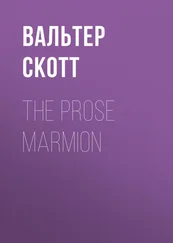Вальтер Скотт - Marmion
Здесь есть возможность читать онлайн «Вальтер Скотт - Marmion» — ознакомительный отрывок электронной книги совершенно бесплатно, а после прочтения отрывка купить полную версию. В некоторых случаях можно слушать аудио, скачать через торрент в формате fb2 и присутствует краткое содержание. Жанр: foreign_antique, foreign_prose, foreign_poetry, на английском языке. Описание произведения, (предисловие) а так же отзывы посетителей доступны на портале библиотеки ЛибКат.
- Название:Marmion
- Автор:
- Жанр:
- Год:неизвестен
- ISBN:нет данных
- Рейтинг книги:5 / 5. Голосов: 1
-
Избранное:Добавить в избранное
- Отзывы:
-
Ваша оценка:
- 100
- 1
- 2
- 3
- 4
- 5
Marmion: краткое содержание, описание и аннотация
Предлагаем к чтению аннотацию, описание, краткое содержание или предисловие (зависит от того, что написал сам автор книги «Marmion»). Если вы не нашли необходимую информацию о книге — напишите в комментариях, мы постараемся отыскать её.
Marmion — читать онлайн ознакомительный отрывок
Ниже представлен текст книги, разбитый по страницам. Система сохранения места последней прочитанной страницы, позволяет с удобством читать онлайн бесплатно книгу «Marmion», без необходимости каждый раз заново искать на чём Вы остановились. Поставьте закладку, и сможете в любой момент перейти на страницу, на которой закончили чтение.
Интервал:
Закладка:
While, however, party politics was not always a subject that interested Scott, patriotism was a constituent element of his character. He had a keen sense of national dignity and honour-as the extract from his Flodden letter alone sufficiently testifies-and, had circumstances demanded it of him, he would almost certainly have distinguished himself as a trooper on the field of battle. Thus it was not only his love of a picturesque theme that inspired him with his Tale of Flodden Field, but likewise his patriotic ardour and his desire to touch the national heart. ‘Marmion’ is epical in character and movement; and it is at the same time a brilliant and suggestive delineation of a national effort, illustrating keen sense of honour, resolute purpose, and pathetic manly devotion. James IV was probably wrong, and he was certainly very rash, in attempting to do battle with Henry VIII, but although his people were aware of his mistake, and his advisers did all in their power to dissuade him, he was supported to the last with a heroism that recalls Thermopylae. This was a display of national character that appealed directly and powerfully to Scott, prompting him to the production of his loftiest and most energetic verse. Mournful associations will ever cluster around the tragic battle of Flodden-that ‘most dolent day,’ as Lyndsay aptly calls it-but all the same the record remains of what heroic men had it in them to do for King and country, where
‘Groom fought like noble, squire like knight,
As fearlessly and well.’
Scott intended to work slowly and carefully through his new poem, but, as he explains in the 1830 Introduction, circumstances interrupted his design. ‘Particular passages,’ he says, ‘of a poem, which was finally called “Marmion,” were laboured with a good deal of care, by one by whom much care was seldom bestowed.’ The publication, however, was hastened by ‘the misfortunes of a near relation and friend.’ Lockhart (Life, ii. 115) explains that the reference is to ‘his brother Thomas’s final withdrawal from the profession of Writer to the Signet, which arrangement seems to have been quite necessary towards the end of 1806.’ At any rate, the poem was finished in a shorter time than had been at first intended. The subject suited Scott so exactly that, even in default of a special stimulus, there need be no surprise at the rapidity of his composition after he had fairly begun to move forward with it. Dryden, it may be remembered, was so held and fascinated by his ‘Alexander’s Feast’ that he wrote it off in a night. Cowper had a similar experience with ‘John Gilpin,’ and Burns’s powerful dramatic tale, ‘Tam O’Shanter,’ was produced with great ease and rapidity. De Quincey records that, in his own case, his very best work was frequently done when he was writing against time. Scott’s energy and fluency of composition are clearly indicated in the following passage in Lockharts Life, ii. 117: -
‘When the theme was of a more stirring order, he enjoyed pursuing it over brake and fell at the full speed of his Lieutenant . I well remember his saying, as I rode with him across the hills from Ashestiel to Newark one day in his declining years-“Oh, man, I had many a grand gallop among these braes when I was thinking of ‘Marmion,’ but a trotting canny pony must serve me now.” His friend, Mr. Skene, however, informs me that many of the more energetic descriptions, and particularly that of the battle of Flodden, were struck out while he was in quarters again with his cavalry, in the autumn of 1807. “In the intervals of drilling,” he says, “Scott used to delight in walking his powerful black steed up and down by himself upon the Portobello sands, within the beating of the surge; and now and then you would see him plunge in his spurs and go off as if at the charge, with the spray dashing about him. As we rode back to Musselburgh, he often came and placed himself beside me to repeat the verses that he had been composing during these pauses of our exercise.”‘
This is wholly in keeping with the production of such poetry of movement as that of ‘Marmion,’ and it deserves its due place in estimating the work of Scott, just as Wordsworth’s staid and sober walks around his garden, or among the hills by which he was surrounded, are carefully considered in connexion with his deliberate, meditative verse. Scott wrote the Introduction to Canto IV just a year after he had begun the poem, and between that time and the middle of February 1808 the work was finished. There is no rashness in saying that rapidity of production did not detract from excellence of result. Indeed, it is admiration rather than criticism that is challenged by the reflection that, in these short months, the poet should have turned out so much verse of high and enduring quality.
‘Marmion’ is avowedly a descriptive poem. It is a series of skilful and impressive pictures, not only remarkable in themselves, but conspicuous in their own kind in poetical literature. Scott is said to have been deficient, or at any rate imperfectly trained, in certain sense activities, but there is no denying his quick perception of colour and his strong sense of the leading points in a landscape. Even minute features are seized and utilized with ease and precision, while the larger elements of a scene are depicted with breadth, sense of proportion, and clearness and impressiveness of arrangement. This holds true whether the description is merely a vivid presentment of what the imagination of the poet calls from the remote past, or a delineation of what has actually come under his notice. Norham at twilight, with the solitary warder on the battlements, and Crichtoun castle, as Scott himself saw it, instantly commend themselves by their realistic vigour and their consistent verisimilitude. Any visitor to Norham will still be able to imagine the stir and the imposing spectacle described in the opening stanzas of the first canto; and it is a pleasure to follow Scott’s minute and faithful picture of Crichtoun by examining the imposing ruin as it stands at the present day. Then it is impossible not to feel that the Edinburgh of the sixteenth century was exactly as it is depicted in the poem, and that the troops on the Borough Moor were disposed as seen by the trained military eye of Sir Walter Scott. It would be difficult to find anywhere a more striking ancient stronghold than Tantallon, nor would it be easy to conceive a more appropriate scene for that grim and exciting morning interview in which the venerable Douglas found that he had harboured a recreant knight. Above all, there is the great battle scene, standing alone in literature for its carefully detailed delineation-its persistent minuteness, its rapidity of movement, its balanced effects, its energetic purpose-and surpassing everything in modern verse for its vivid Homeric realism. Fifteen years before, as we have seen, Scott had the progress of the battle in his mind’s eye, and at length he produced his description as if he had been present in the character of a skilful and interested spectator. There are envious people who decline to admit that Scott discovered his scenery, and who contend that others knew all about it before and appreciated it in their own way. Be it so; and yet the fact remains that Scott likewise saw and appreciated in the way peculiar to him, and thereby enabled his numerous readers to share his enjoyment. A very interesting and suggestive account of the new popularity given to the Flodden district by the publication of ‘Marmion’ will be found in Lockhart’s Life, iii. 12. In the autumn of 1812 Scott visited Rokeby, doing the journey on horseback, along with his eldest boy and girl on ponies. The following is an episode of the way: -
‘Halting at Flodden to expound the field of battle to his young folks, he found that “Marmion” had, as might have been expected, benefited the keeper of the public-house there very largely; and the village Boniface, overflowing with gratitude, expressed his anxiety to have a Scott’s Head for his sign-post. The poet demurred to this proposal, and assured mine host that nothing could be more appropriate than the portraiture of a foaming tankard, which already surmounted his doorway. “Why, the painter man has not made an ill job,” said the landlord, “but I would fain have something more connected with the book that has brought me so much good custom.” He produced a well-thumbed copy, and handing it to the author, begged he would at least suggest a motto from the Tale of Flodden Field. Scott opened the book at the death-scene of the hero, and his eye was immediately caught by the “inscription” in black letter: -
Читать дальшеИнтервал:
Закладка:
Похожие книги на «Marmion»
Представляем Вашему вниманию похожие книги на «Marmion» списком для выбора. Мы отобрали схожую по названию и смыслу литературу в надежде предоставить читателям больше вариантов отыскать новые, интересные, ещё непрочитанные произведения.
Обсуждение, отзывы о книге «Marmion» и просто собственные мнения читателей. Оставьте ваши комментарии, напишите, что Вы думаете о произведении, его смысле или главных героях. Укажите что конкретно понравилось, а что нет, и почему Вы так считаете.












